- Home
- Jack Higgins
Eagle Has Landed Page 15
Eagle Has Landed Read online
Page 15
‘Not particularly.’ Gericke held up his empty Schnapps glass to the waiter and signalled for another. ‘As it happens, I’m perfectly happy where I am.’
‘A man who consumes Schnapps in such an amount at four o’clock in the morning? I doubt that. In any case, you’ve no choice in the matter.’
‘Is that so?’ Gericke said angrily.
‘You are perfectly at liberty to confirm this with the Gruppenkommandeur,’ Radl said.
The waiter brought him the second glass of Schnapps, Gericke poured it down in one quick swallow and made a face. ‘God, how I hate that stuff.’
‘Then why drink it?’ Radl asked.
‘I don’t know. Maybe I’ve been out there in the dark too much or flying too long.’ He smiled sardonically. ‘Or perhaps I just need a change, Herr Oberst.’
‘I think I may say without any exaggeration that I can certainly offer you that.’
‘Fine.’ Gericke swallowed the rest of his coffee. ‘What’s the next move?’
‘I have an appointment in Amsterdam at nine o’clock. Our destination after that is about twenty miles north of the city, on the way to Den Helder.’ He glanced at his watch. ‘We’ll need to leave here no later than seven-thirty.’
‘That gives me time for breakfast and a bath,’ Gericke said, ‘I can catch a little sleep in the car if that’s all right with you.’
As he got up, the door opened and an orderly came in. He saluted and passed the young captain a signal flimsy. Gericke read it and smiled. ‘Something important?’ Radl asked.
‘The Tommi who parachuted out of that Lancaster I shot down earlier. They’ve picked him up. A pilot officer navigator.’
‘His luck is good,’ Radl commented.
‘A good omen,’ Gericke said. ‘Let’s hope mine is.’
Landsvoort was a desolate little place about twenty miles north of Amsterdam between Schagen and the sea. Gericke slept soundly for the entire journey, only coming awake when Radl shook his arm.
There was an old farmhouse and barn, two hangars roofed with rusting corrugated iron and a single runway of crumbling concrete, grass growing between the cracks. The wire perimeter fence was nothing very special and the steel and wire swing gate, which looked new, was guarded by a sergeant with the distinctive gorget plate of the military police hanging around his neck. He was armed with a Schmeisser machine pistol and held a rather savage-looking Alsatian on the end of a steel chain.
He checked their papers impassively while the dog growled deep in its throat, full of menace. Radl drove on through the gate and pulled up in front of the hangars. ‘Well, this is it.’
The landscape was incredibly flat, stretching out towards the distant sand dunes and the North Sea beyond. As Gericke opened the door and got out, rain drifted in off the sea in a fine spray and there was the tang of salt to it. He walked across to the edge of the crumbling runway and kicked with his foot until a piece of concrete broke away.
‘It was built by a shipping magnate in Rotterdam for his own use ten or twelve years ago,’ Radl said as he got out of the car to join him. ‘What do you think?’
‘All we need now are the Wright brothers.’ Gericke looked out towards the sea, shivered and thrust his hands deep into the pockets of his leather coat. ‘What a dump—the last place on God’s list, I should imagine.’
‘Therefore exactly right for our purposes,’ Radl pointed out. ‘Now, let’s get down to business.’
He led the way across to the first hangar which was guarded by another military policeman complete with Alsatian. Radl nodded and the man pulled back one of the sliding doors.
It was damp and rather cold inside, rain drifting in through a hole in the roof. The twin-engined aircraft which stood there looked lonely and rather forlorn, and very definitely far from home. Gericke prided himself that he had long since got past being surprised at anything in this life, but not that morning.
The aircraft was a Douglas DC3, the famous Dakota, probably one of the most successful general transport planes ever built, as much a workhorse for the Allied Forces during the war as was the Junkers 52 to the German Army. The interesting thing about this one was that it carried Luftwaffe insignia on the wings and a Swastika on the tail.
Peter Gericke loved aeroplanes as some men love horses, with a deep and unswerving passion. He reached up and touched a wing gently and his voice was soft when he said, ‘You old beauty.’
‘You know this aircraft?’ Radl said.
‘Better than any woman.’
‘Six months with the Landros Air Freight Company in Brazil from June to November, nineteen-thirty-eight. Nine hundred and thirty flying hours. Quite something for a nineteen-year-old. That must have been hard flying.’
‘So that’s why I was chosen?’
‘All on your records.’
‘Where did you get her?’
‘RAF Transport Command, dropping supplies to the Dutch Resistance four months ago. One of your night fighter friends got her. Superficial engine damage only. Something to do with the fuel pump, I understand. The observer was too badly wounded to jump so the pilot managed to bring her down in a ploughed field. Unfortunately for him he was next door to an SS barracks. By the time he got his friend out, it was too late to blow her up.’
The door was open and Gericke pulled himself inside. In the cockpit, he sat behind the controls and for a moment he was back in Brazil, green jungle below, the Amazon twisting through it like a great, silver snake from Manaus down to the sea.
Radl took the other seat. He produced a silver case and offered Gericke one of his Russian cigarettes. ‘You could fly this thing, then?’
‘Where to?’
‘Not very far. Across the North Sea to Norfolk. Straight in, straight out.’
‘To do what?’
‘Drop sixteen paratroopers.’
In his astonishment, Gericke inhaled too deeply and almost choked, the harsh Russian tobacco catching at the back of his throat.
He laughed wildly. ‘Operation Sealion at last. Don’t you think it’s a trifle late in the war for the invasion of England?’
‘This particular section of the coast has no low level radar cover,’ Radl said calmly. ‘No difficulty at all if you go in below six hundred feet. Naturally I’ll have the plane cleaned up and the RAF rondels replaced on the wings. If anyone does see you, they see an RAF aircraft presumably going about its lawful business.’
‘But why?’ said Gericke. ‘What in the hell are they going to do when they get there?’
‘None of your affair,’ Radl said firmly. ‘You are just a bus driver, my friend.’
He got up and went out and Gericke followed him. ‘Now look here, I think you could do better than that.’
Radl walked to the Mercedes without replying. He stood looking out across the airfield to the sea. ‘Too tough for you?’
‘Don’t be stupid,’ Gericke told him angrily. ‘I just like to know what I’m getting into, that’s all.’
Radl opened his coat and unbuttoned his tunic. From the inside pocket he took out the stiff manilla envelope that housed the precious letter and handed it to Gericke. ‘Read that,’ he said crisply.
When Gericke looked up, his face was suddenly bleak. ‘That important? No wonder Prager was so disturbed.’
‘Exactly.’
‘All right, how long have I got?’
‘Approximately four weeks.’
‘I’ll need Bohmler, my observer, to fly with me. He’s the best bloody navigator I’ve ever come across.’
‘Anything you need. Just ask. Top secret, the whole thing, of course. I can get you a week’s leave if you like. After that, you stay here, at the farm under strict security.’
‘Can I test flight?’
‘If you must, but only at night and preferably only once. I’ll have a team of the finest aircraft mechanics the Luftwaffe can supply. Anything you need. You’ll be in charge of that side. I don’t want engines failing for some absurd mechanical r
eason when you’re four hundred feet above a Norfolk marsh. We’ll go back to Amsterdam now.’
At precisely two forty-five on the following morning, Seumas O’Broin, a sheep farmer of Conroy in County Monaghan was endeavouring to find his way home across a stretch of open moorland. And making a bad job of it.
Which was understandable enough for when one is seventy-six, friends have a tendency to disappear with monotonous regularity and Seumas O’Broin was on his way home from a funeral wake for one who had just departed—a wake which had lasted for seventeen hours.
He had not only, as the Irish so delightfully put it, drink taken. He had consumed quantities so vast that he was not certain whether he was in this world or the next; so that when what he took to be a large, white bird sailed out of the darkness over his head without a sound and plunged into the field beyond the next wall, he felt no fear at all, only a mild curiosity.
Devlin made an excellent landing, the supply bag dangling twenty feet below from a line clipped to his belt, hitting the ground first, warning him to be ready. He followed a split second later, rolling in springy Irish turf, scrambling to his feet instantly and unfastening his harness.
The clouds parted at that moment, exposing a quarter-moon which gave him exactly the right amount of light to do what had to be done. He opened the supply bag, took out a small trenching shovel, his dark raincoat, a tweed cap, a pair of shoes and a large, leather Gladstone bag.
There was a thorn hedge nearby, a ditch beside it and he quickly scraped a hole in the bottom with the shovel. Then he unzipped his flying overalls. Underneath he was wearing a tweed suit and he transferred the Walther which he had carried in his belt to his right-hand pocket. He pulled on his shoes and then put the overalls, the parachute and the flying boots into the bag and dropped it into the hole, raking the soil back into place quickly. He scraped a mass of dry leaves and twigs over everything, just to finish things off and tossed the spade into a nearby copse.
He pulled on his raincoat, picked up the Gladstone bag and turned to find Seumas O’Broin leaning on the wall watching him. Devlin moved fast, his hand on the butt of the Walther. But then the aroma of good Irish whiskey, the slurred speech told him all he needed to know.
‘What are ye, man or divil?’ the old farmer demanded, each word slow and distinct. ‘Of this world or the next?’
‘God save us, old man, but from the smell of you, if one of us lit a match right now we’d be in hell together soon enough. As for your question, I’m a little of both. A simple Irish boy, trying a new way of coming home after years in foreign parts.’
‘Is that a fact?’ O’Broin said.
‘Aren’t I telling you?’
The old man laughed delightedly. ‘Cead mile failte sa bhaile romhat,’ he said in Irish. ‘A hundred thousand welcomes home to you.’
Devlin grinned. ‘Go raibh maith agat,’ he said. ‘Thanks.’ He picked up the Gladstone bag, vaulted over the wall and set off across the meadow briskly, whistling softly between his teeth. It was good to be home, however brief the visit.
The Ulster border, then, as now, was wide open to anyone who knew the area. Two and a half hours of brisk walking by country lanes and field paths and he was in the county of Armagh and standing on British soil. A lift in a milk truck had him in Armagh itself by six o’clock. Half-an-hour later, he was climbing into a third-class compartment on the early morning train to Belfast.
Seven
ON WEDNESDAY IT RAINED all day and in the afternoon mist drifted in off the North Sea across the marshes at Cley and Hobs End and Blakeney.
In spite of the weather, Joanna Grey went into the garden after lunch. She was working in the vegetable patch beside the orchard, lifting potatoes, when the garden gate creaked. Patch gave a sudden whine and was off like a flash. When she turned, a smallish, pale-faced man with good shoulders, wearing a black, belted trenchcoat and tweed cap was standing at the end of the path. He carried a Gladstone bag in his left hand and had the most startlingly blue eyes she had ever seen.
‘Mrs Grey?’ he enquired in a soft, Irish voice. ‘Mrs Joanna Grey?’
‘That’s right.’ Her stomach knotted with excitement. For a brief moment she could hardly breathe.
He smiled. ‘I shall light a candle of understanding in the heart which shall not be put out.’
‘Magna est veritas et praevalet.’
‘Great is Truth and mighty above all things,’ Liam Devlin smiled. ‘I could do with a cup of tea, Mrs Grey. It’s been one hell of a trip.’
Devlin had been unable to secure a ticket for the night crossing from Belfast to Heysham on Monday and the situation was no better on the Glasgow route. But the advice of a friendly booking clerk had sent him up to Larne where he’d had better luck, obtaining a passage on the Tuesday morning boat on the short run to Stranraer in Scotland.
The exigencies of wartime travel by train had left him with a seemingly interminable journey from Stranraer to Carlisle, changing for Leeds. And in that city, a lengthy wait into the small hours of Wednesday morning before making a suitable connection for Peterborough where he had made the final change to a local train for Kings Lynn.
Much of this passed through his mind again when Joanna Grey turned from the stove where she was making tea and said, ‘Well, how was it?’
‘Not too bad,’ he said. ‘Surprising in some ways.’
‘How do you mean?’
‘Oh, the people, the general state of things. It wasn’t quite as I expected.’
He thought particularly of the station restaurant at Leeds, crowded all night with travellers of every description, all hopefully waiting for a train to somewhere, the poster on the wall which had said with particular irony in his case: It is more than ever vital to ask yourself: Is my journey really necessary? He remembered the rough good humour, the general high spirits and contrasted it less than favourably with his last visit to the central railway station in Berlin.
‘They seem to be pretty sure they’re going to win the war,’ he said as she brought the tea tray to the table.
‘A fool’s paradise,’ she told him calmly. ‘They never learn. They’ve never had the organization, you see, the discipline that the Führer has given to Germany.’
Remembering the bomb-scarred Chancellery as he had last seen it, the considerable portions of Berlin that were simply heaps of rubble after the Allied bombing offensive, Devlin felt almost constrained to point out that things had changed rather a lot since the good old days. On the other hand, he got the distinct impression that such a remark would not be well received.
So, he drank his tea and watched her as she walked to a corner cupboard, opened it and took down a bottle of Scotch, marvelling that this pleasant-faced, white-haired woman in the neat, tweed skirt and Wellington boots could be what she was.
She poured a generous measure into two glasses and raised one in a kind of salute. ‘To the English Enterprise,’ she said, her eyes shining.
Devlin could have told her that the Spanish Armada had been so described, but remembering what had happened to that ill-fated venture decided, once again, to keep his mouth shut.
‘To the English Enterprise,’ he said solemnly.
‘Good.’ She put down her glass. ‘Now let me see all your papers. I must make sure you have everything.’
He produced his passport, army discharge papers, a testimonial purporting to be from his old commanding officer, a similar letter from his parish priest and various documents relating to his medical condition.
‘Excellent,’ she said. ‘These are really very good. What happens now is this. I’ve fixed you up with a job working for the local squire, Sir Henry Willoughby. He wants to see you as soon as you arrive so we’ll get that over with today. Tomorrow morning I’ll run you into Fakenham, that’s a market town about ten miles from here.’
‘And what do I do there?’
‘Report to the local police station. They’ll give you an alien’s registration form which all Irish citizens
have to fill in and you’ll also have to provide a passport photo, but we can get that with no trouble. Then you’ll need insurance cards, an identity card, ration book, clothing coupons.’
She numbered them off on the fingers of one hand and Devlin grinned. ‘Heh, hold on now. It sounds like one hell of a lot of trouble to me. Three weeks on Saturday, that’s all, and I’ll be away from here so fast they’ll think I’ve never been.’
‘All these things are essential,’ she said. ‘Everyone has them, so you must. It only needs one petty clerk in Fakenham or Kings Lynn to notice that you haven’t applied for something and put an enquiry in hand and then where would you be?’
Devlin said cheerfully. ‘All right, you’re the boss. Now what about this job?’
‘Warden of the marshes at Hobs End. It couldn’t be more isolated. There’s a cottage to go with it. Not much, but it will do.’
‘And what will be expected of me?’
‘Gamekeeping duties in the main and there’s a system of dyke gates that needs regular checking. They haven’t had a warden for two years since the last one went off to the war. And you’ll be expected to keep the vermin in check. The foxes play havoc with the wild-fowl.’
‘What do I do? Throw stones at them?’
‘No, Sir Henry will supply you with a shotgun.’
‘That’s nice of him. What about transport?’
‘I’ve done the best I can. I’ve managed to persuade Sir Henry to allocate you one of the estate motor-bikes. As an agricultural worker it’s legitimate enough. Buses have almost ceased to exist, so most people are allowed a small monthly ration to help them get into town occasionally for essential purposes.’
A horn sounded outside. She went into the sitting-room and was back in an instant. ‘It’s Sir Henry. Leave the talking to me. Just act properly servile and speak only when you’re spoken to. He’ll like that. I’ll bring him in here.’
She went out and Devlin waited. He heard the front door open and her feigned surprise. Sir Henry said, ‘Just on my way to another command meeting in Holt, Joanna. Wondered if there was anything I could get you?’
She replied much more quietly so that Devlin couldn’t hear what she said. Sir Henry dropped his voice in return, there was a further murmur of conversation and then they came into the kitchen.

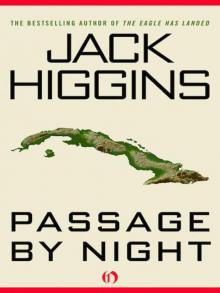 Passage by Night (v5)
Passage by Night (v5)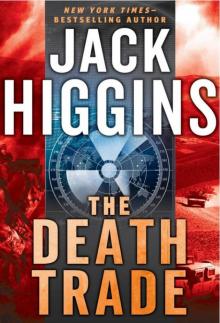 The Death Trade sd-20
The Death Trade sd-20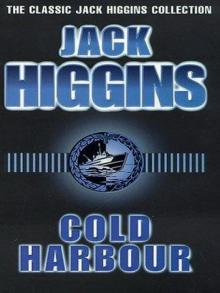 Cold Harbour
Cold Harbour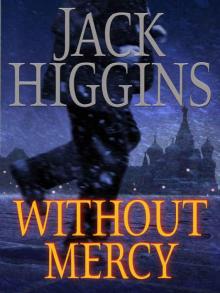 Without Mercy
Without Mercy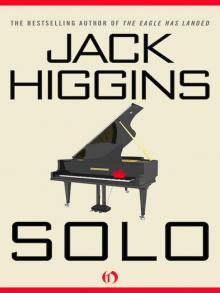 Solo (Aka the Cretan Lover)(1980)
Solo (Aka the Cretan Lover)(1980) First Strike
First Strike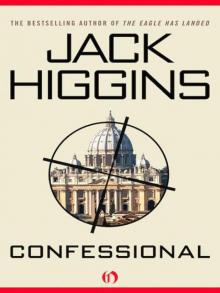 Confessional - Devlin 03 (v5)
Confessional - Devlin 03 (v5)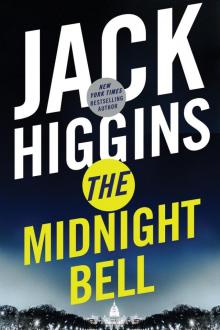 The Midnight Bell
The Midnight Bell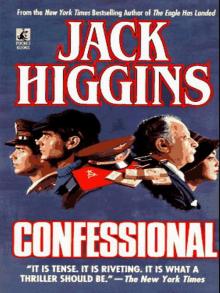 Confessional
Confessional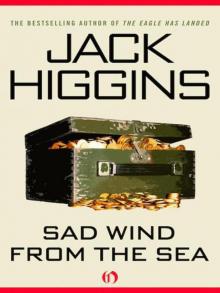 Sad Wind from the Sea (v5)
Sad Wind from the Sea (v5)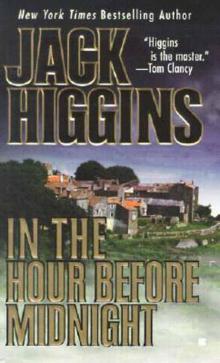 In The Hour Before Midnight aka The Sicilian Heritage
In The Hour Before Midnight aka The Sicilian Heritage Wrath of the Lion
Wrath of the Lion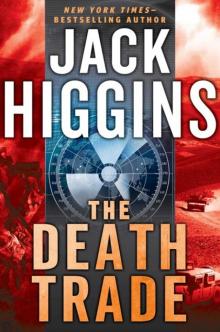 SDillon 20 - The Death Trade
SDillon 20 - The Death Trade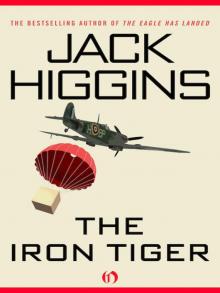 the Iron Tiger (1974)
the Iron Tiger (1974)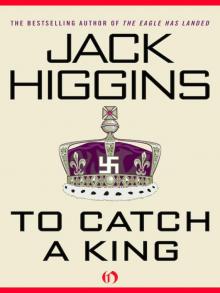 To Catch a King
To Catch a King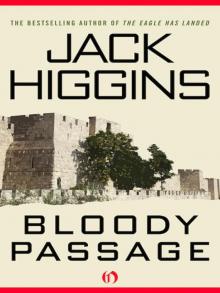 Bloody Passage (1999)
Bloody Passage (1999)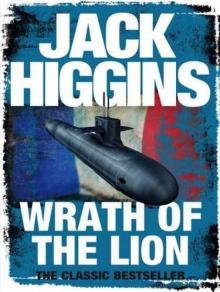 Wrath of the Lion sd-8
Wrath of the Lion sd-8 Sharp Shot
Sharp Shot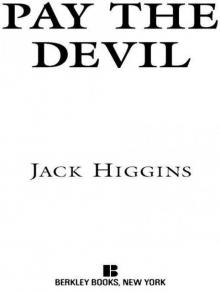 Pay the Devil (v5)
Pay the Devil (v5) A Devil Is Waiting
A Devil Is Waiting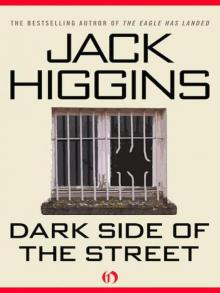 Dark Side of the Street - Simon Vaughn 01 (v5)
Dark Side of the Street - Simon Vaughn 01 (v5)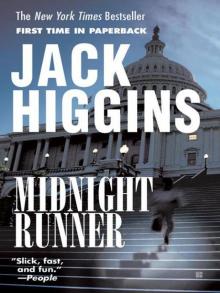 Midnight Runner - Sean Dillon 10
Midnight Runner - Sean Dillon 10 Wrath of God
Wrath of God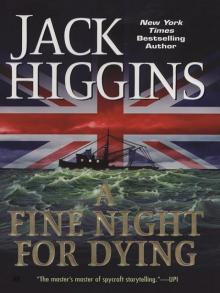 A Fine Night for Dying
A Fine Night for Dying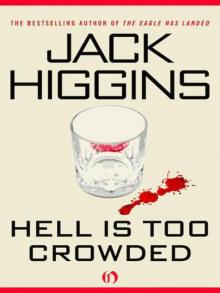 Hell Is Too Crowded v5)
Hell Is Too Crowded v5)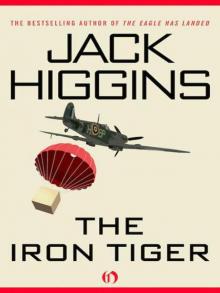 the Iron Tiger (v5)
the Iron Tiger (v5)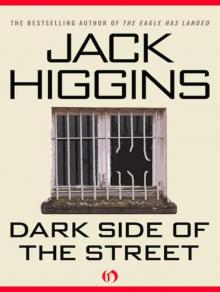 Dark Side of the Street pc-5
Dark Side of the Street pc-5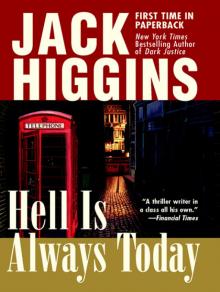 Hell Is Always Today
Hell Is Always Today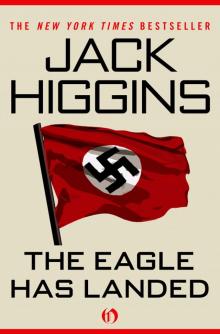 Eagle Has Landed
Eagle Has Landed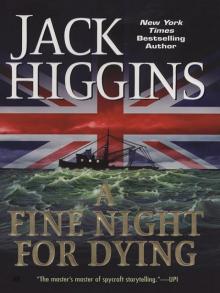 A Fine Night for Dying pc-6
A Fine Night for Dying pc-6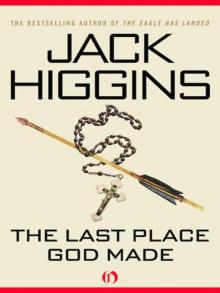 the Last Place God Made (v5)
the Last Place God Made (v5)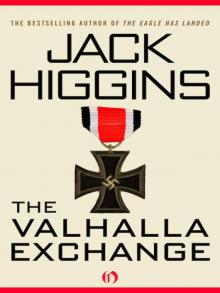 the Valhalla Exchange (1976)
the Valhalla Exchange (1976)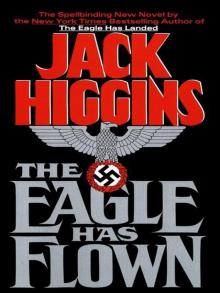 The Eagle Has Flown
The Eagle Has Flown Sure Fire
Sure Fire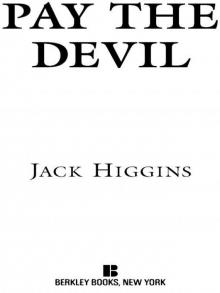 Pay the Devil (1999)
Pay the Devil (1999) Memoirs of a Dance Hall Romeo
Memoirs of a Dance Hall Romeo![a Prayer for the Dying (1974)[1] Read online](http://i1.bookreadfree.com/i1/04/02/a_prayer_for_the_dying_19741_preview.jpg) a Prayer for the Dying (1974)[1]
a Prayer for the Dying (1974)[1]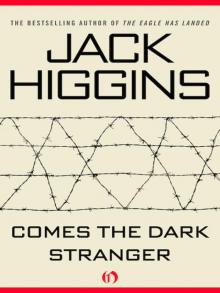 Comes the Dark Stranger
Comes the Dark Stranger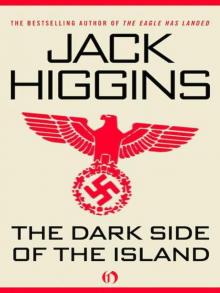 Dark Side Of the Island (v5)
Dark Side Of the Island (v5)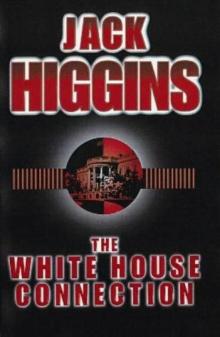 The White House Connection sd-7
The White House Connection sd-7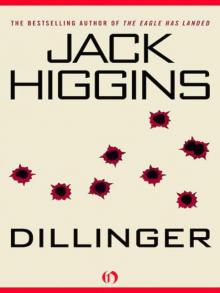 Dillinger (v5)
Dillinger (v5) Eye of the Storm
Eye of the Storm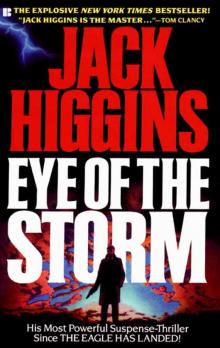 Eye Of The Storm aka Midnight Man
Eye Of The Storm aka Midnight Man A Darker Place
A Darker Place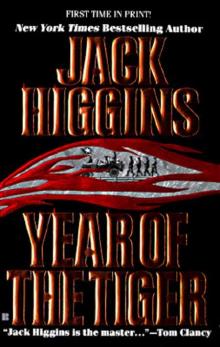 Year Of The Tiger
Year Of The Tiger Death Run
Death Run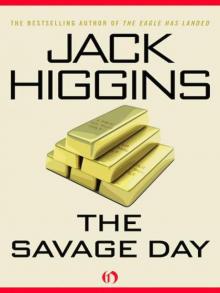 the Savage Day - Simon Vaughn 02 (v5)
the Savage Day - Simon Vaughn 02 (v5)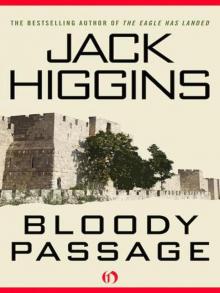 Bloody Passage (v5)
Bloody Passage (v5)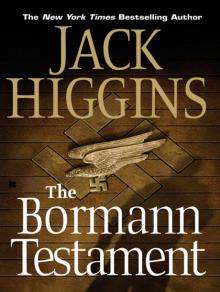 The Bormann Testament
The Bormann Testament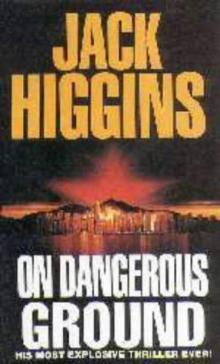 On dangerous ground sd-3
On dangerous ground sd-3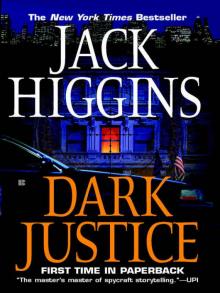 Dark Justice
Dark Justice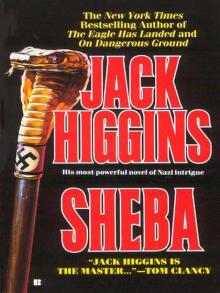 Sheba
Sheba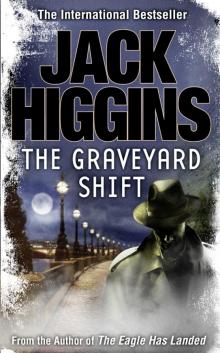 The Graveyard Shift
The Graveyard Shift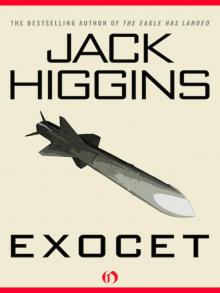 Exocet (1983)
Exocet (1983)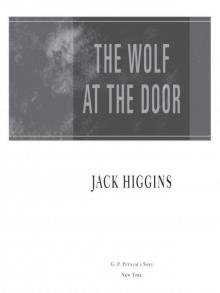 The Wolf at the Door
The Wolf at the Door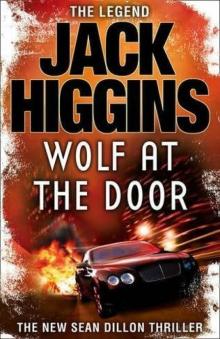 The wolf at the door sd-17
The wolf at the door sd-17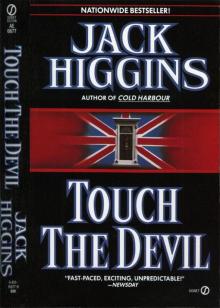 Touch The Devil
Touch The Devil The President’s Daughter
The President’s Daughter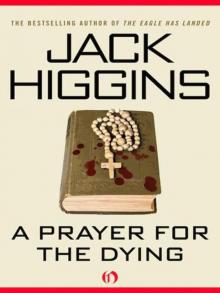 A Prayer for the Dying (v5)
A Prayer for the Dying (v5)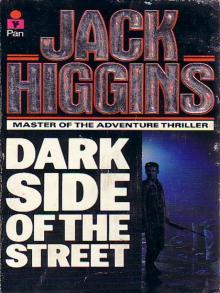 Dark Side Of The Street
Dark Side Of The Street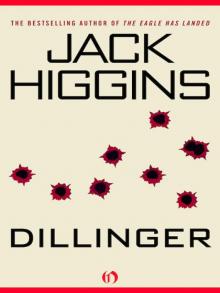 Dillinger (1983)
Dillinger (1983)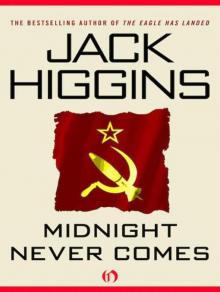 Midnight Never Comes pc-4
Midnight Never Comes pc-4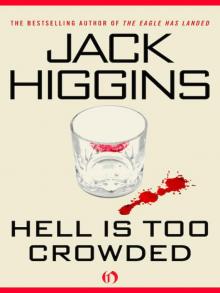 Hell Is Too Crowded (1991)
Hell Is Too Crowded (1991)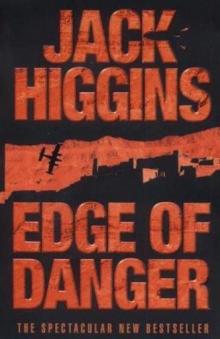 Edge of Danger sd-9
Edge of Danger sd-9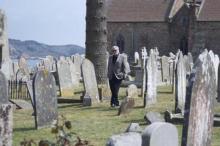 The Thousand Faces of Night (v5)
The Thousand Faces of Night (v5)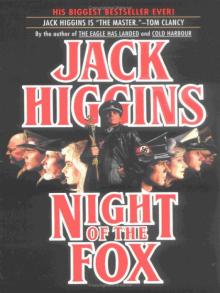 Night Of The Fox
Night Of The Fox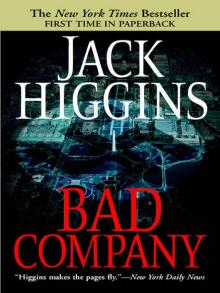 Bad Company
Bad Company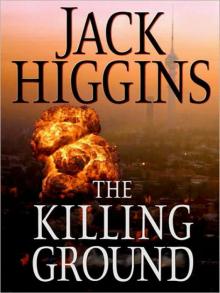 The Killing Ground
The Killing Ground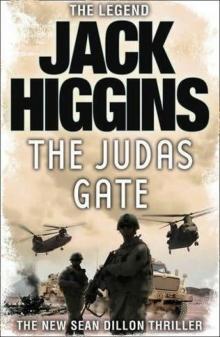 The Judas gate sd-18
The Judas gate sd-18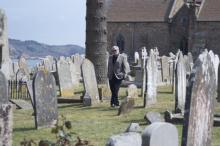 The Thousand Faces of Night (1961)
The Thousand Faces of Night (1961)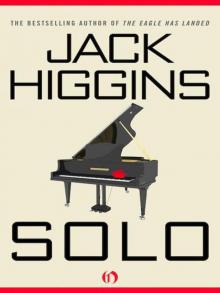 Solo (Aka the Cretan Lover) (v5)
Solo (Aka the Cretan Lover) (v5)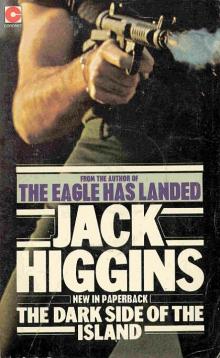 The Dark Side Of The Island
The Dark Side Of The Island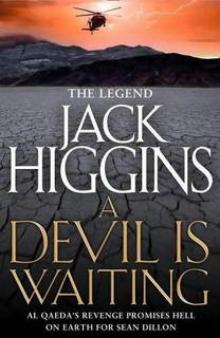 A Devil is vaiting sd-19
A Devil is vaiting sd-19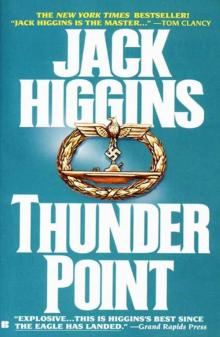 Thunder Point
Thunder Point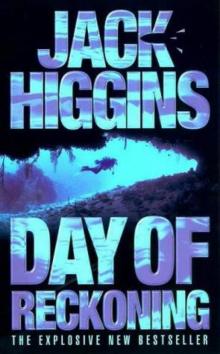 Day of Reckoning sd-8
Day of Reckoning sd-8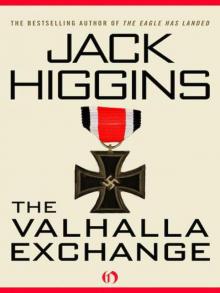 the Valhalla Exchange (v5)
the Valhalla Exchange (v5)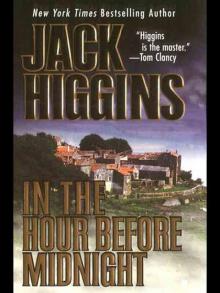 In the Hour Before Midnight
In the Hour Before Midnight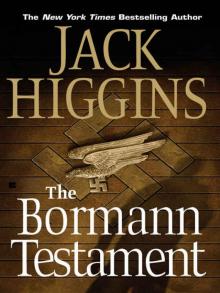 The Bormann Testament (The Testament of Caspar Schultz)
The Bormann Testament (The Testament of Caspar Schultz) The Judas Gate
The Judas Gate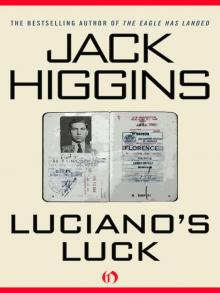 Luciano's Luck
Luciano's Luck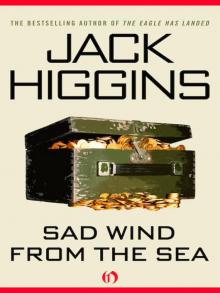 Sad Wind from the Sea (1959)
Sad Wind from the Sea (1959)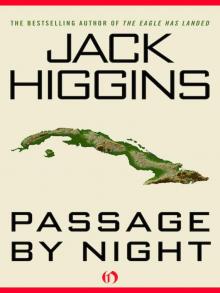 Passage by Night (1987)
Passage by Night (1987)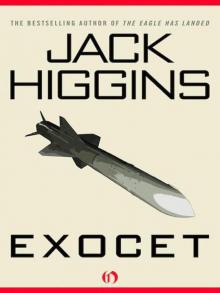 Exocet (v5)
Exocet (v5)